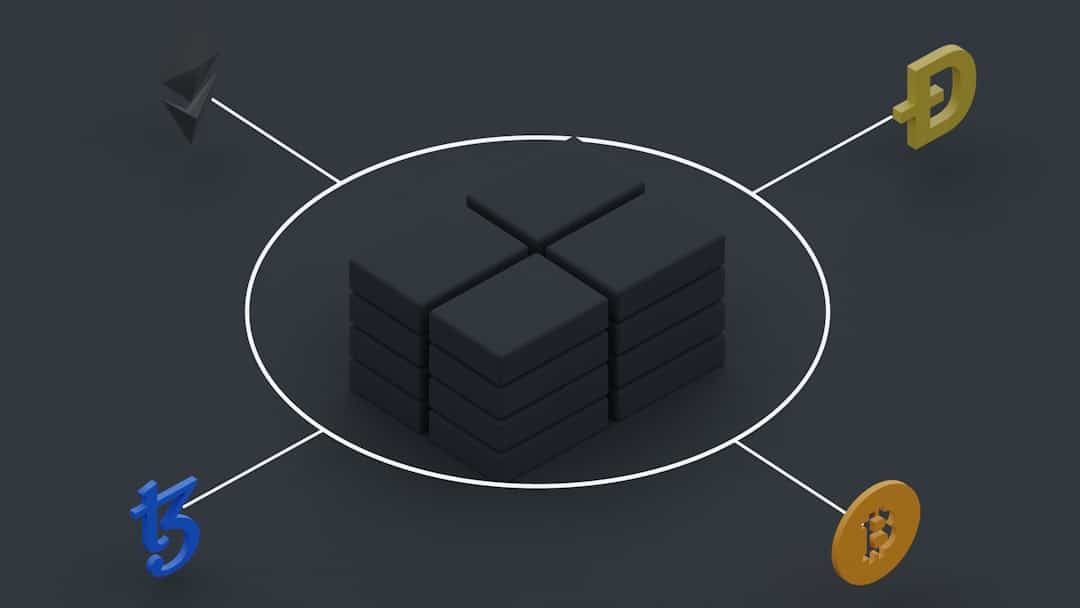The advent of blockchain technology has revolutionized the way transactions are conducted, introducing a level of transparency and security previously unattainable in traditional systems. At the forefront of this innovation are smart contracts—self-executing contracts with the terms of the agreement directly written into code. These digital contracts automatically enforce and execute the terms when predetermined conditions are met, eliminating the need for intermediaries.
However, as the digital landscape evolves, so too do the threats that accompany it. Enter artificial intelligence (AI), a transformative technology that enhances the capabilities of smart contracts, particularly in the realm of fraud detection and prevention. AI-powered smart contracts represent a fusion of two groundbreaking technologies, combining the immutable nature of blockchain with the analytical prowess of AI.
This synergy not only streamlines processes but also fortifies them against fraudulent activities. By leveraging machine learning algorithms and data analytics, these smart contracts can identify patterns and anomalies that may indicate fraudulent behavior, thereby safeguarding financial transactions. As businesses increasingly adopt these technologies, understanding their implications becomes crucial for stakeholders across various sectors.
Key Takeaways
- AI-powered smart contracts combine artificial intelligence and blockchain technology to automate and secure transactions.
- Fraud in financial transactions is a significant problem that can result in substantial financial losses for individuals and businesses.
- AI plays a crucial role in detecting and preventing fraud by analyzing large volumes of data and identifying suspicious patterns and behaviors.
- Smart contracts leverage AI technology to automatically execute and enforce the terms of an agreement, reducing the risk of fraud and human error.
- Case studies demonstrate the effectiveness of AI-powered smart contracts in reducing fraud and improving the efficiency of financial transactions.
Understanding the Problem of Fraud in Financial Transactions
Fraud in financial transactions is a pervasive issue that has plagued individuals and organizations for centuries. The rise of digital transactions has only exacerbated this problem, with cybercriminals employing increasingly sophisticated techniques to exploit vulnerabilities in systems. According to a report by the Association of Certified Fraud Examiners (ACFE), organizations lose an estimated 5% of their annual revenues to fraud, which translates to trillions of dollars globally.
This staggering figure underscores the urgent need for effective solutions to combat fraudulent activities. Fraud can manifest in numerous forms, including identity theft, credit card fraud, and phishing schemes. In many cases, these fraudulent activities are facilitated by a lack of transparency and accountability in financial systems.
Traditional methods of fraud detection often rely on manual processes and static rules, which can be easily circumvented by savvy criminals. As a result, organizations are left vulnerable to significant financial losses and reputational damage. The challenge lies not only in detecting fraud but also in preventing it before it occurs, necessitating innovative approaches that can adapt to evolving threats.
The Role of AI in Detecting and Preventing Fraud

Artificial intelligence has emerged as a powerful ally in the fight against fraud, offering advanced capabilities that traditional methods lack. Machine learning algorithms can analyze vast amounts of data in real-time, identifying patterns and anomalies that may indicate fraudulent behavior. For instance, AI systems can learn from historical transaction data to establish baseline behaviors for individual users or entities.
When deviations from these norms occur—such as an unusually large transaction or a sudden change in spending patterns—the system can flag these activities for further investigation. Moreover, AI’s predictive analytics capabilities enable organizations to anticipate potential fraud before it occurs. By analyzing trends and behaviors across multiple data points, AI can identify emerging threats and alert stakeholders to take preventive measures.
This proactive approach is particularly valuable in industries such as finance and insurance, where timely intervention can mitigate losses and protect customers. The integration of AI into fraud detection systems not only enhances accuracy but also reduces the burden on human analysts, allowing them to focus on more complex cases that require nuanced judgment.
How Smart Contracts Are Leveraging AI Technology
Smart contracts are increasingly incorporating AI technology to enhance their functionality and security.
For example, an AI-powered smart contract could automatically adjust terms based on real-time data inputs, such as market conditions or user behavior.
This adaptability makes smart contracts more resilient to fraud, as they can respond dynamically to suspicious activities. Additionally, AI can enhance the verification processes inherent in smart contracts.
For instance, an AI system could analyze external data sources—such as credit scores or transaction histories—to determine whether a party meets the necessary criteria for a contract’s execution. This level of scrutiny helps ensure that only legitimate transactions are processed, significantly reducing the risk of fraud.
Case Studies of AI-Powered Smart Contracts in Action
Several organizations have begun to implement AI-powered smart contracts with promising results. One notable example is the use of these technologies in supply chain management. Companies like IBM have developed blockchain solutions that incorporate AI to track goods from production to delivery.
By utilizing smart contracts that automatically execute payments upon verified delivery, businesses can minimize disputes and reduce opportunities for fraud. The integration of AI allows for real-time monitoring of shipments, ensuring that any discrepancies are immediately flagged for investigation. Another compelling case study involves the financial services sector, where institutions are leveraging AI-powered smart contracts to streamline loan processing.
By automating the verification of borrower information through AI algorithms, lenders can expedite approvals while simultaneously reducing the risk of fraudulent applications. For instance, a bank might use an AI system to analyze credit histories and income statements against predefined criteria within a smart contract. If any inconsistencies arise—such as discrepancies between reported income and actual bank statements—the contract can halt the process until further verification is conducted.
Benefits of Using AI-Powered Smart Contracts for Fraud Reduction

The integration of AI into smart contracts offers numerous benefits that significantly enhance fraud reduction efforts. One primary advantage is increased efficiency; by automating verification processes and decision-making, organizations can reduce the time it takes to execute transactions while maintaining high levels of security. This efficiency not only improves operational workflows but also enhances customer satisfaction by providing faster service.
Furthermore, AI-powered smart contracts provide a higher level of accuracy in detecting fraudulent activities compared to traditional methods. The ability to analyze vast datasets in real-time allows these systems to identify subtle patterns that may go unnoticed by human analysts. This heightened accuracy translates into fewer false positives and negatives, enabling organizations to focus their resources on genuine threats rather than expending effort on benign transactions.
Challenges and Limitations of AI-Powered Smart Contracts
Despite their potential benefits, AI-powered smart contracts are not without challenges and limitations. One significant concern is the reliance on data quality; if the data fed into AI algorithms is inaccurate or biased, it can lead to erroneous conclusions and decisions. For instance, if historical transaction data used to train an AI model contains biases—such as disproportionately flagging certain demographics as high-risk—this could result in unfair treatment and discrimination.
Additionally, the complexity of integrating AI with existing blockchain infrastructure poses technical challenges. Organizations must navigate compatibility issues between different blockchain platforms and ensure that their smart contracts can effectively communicate with AI systems. This integration requires specialized knowledge and resources, which may be a barrier for smaller organizations looking to adopt these technologies.
The Future of AI-Powered Smart Contracts in the Fight Against Fraud
Looking ahead, the future of AI-powered smart contracts appears promising as advancements in both fields continue to evolve. As machine learning algorithms become more sophisticated and capable of processing larger datasets with greater accuracy, we can expect even more robust fraud detection mechanisms within smart contracts. Furthermore, as regulatory frameworks surrounding blockchain technology mature, organizations will likely gain clearer guidelines on implementing these solutions effectively.
The potential for collaboration between industries also presents exciting opportunities for innovation. For example, partnerships between financial institutions and technology companies could lead to the development of standardized protocols for AI-powered smart contracts that enhance interoperability across platforms. Such collaborations could foster a more secure digital economy where fraud is significantly mitigated through collective efforts.
In conclusion, while challenges remain in the implementation of AI-powered smart contracts, their potential to revolutionize fraud detection and prevention is undeniable. As organizations continue to explore these technologies, they will play a crucial role in shaping a more secure financial landscape for all stakeholders involved.
A related article discussing the top 5 smartwatches of 2023 can be found here. This article explores the latest advancements in wearable technology and highlights the most innovative smartwatches on the market. Just as AI-powered smart contracts are revolutionizing financial transactions, these cutting-edge smartwatches are changing the way we interact with technology on a daily basis. Both articles showcase how technology is constantly evolving to improve efficiency and security in various aspects of our lives.
FAQs
What are AI-powered smart contracts?
AI-powered smart contracts are self-executing contracts with the terms of the agreement between buyer and seller directly written into code. These contracts use artificial intelligence to automatically enforce and execute the terms of the agreement without the need for intermediaries.
How do AI-powered smart contracts reduce fraud in financial transactions?
AI-powered smart contracts reduce fraud in financial transactions by using advanced algorithms to verify and authenticate the parties involved, ensuring that the terms of the contract are met, and automatically executing the contract without the need for human intervention. This reduces the risk of fraud and manipulation in financial transactions.
What are the benefits of using AI-powered smart contracts in financial transactions?
Some benefits of using AI-powered smart contracts in financial transactions include increased security and trust, reduced risk of fraud, lower transaction costs, faster transaction processing, and improved transparency and efficiency in the contract execution process.
How does artificial intelligence enhance the effectiveness of smart contracts in reducing fraud?
Artificial intelligence enhances the effectiveness of smart contracts in reducing fraud by enabling advanced fraud detection and prevention mechanisms, real-time monitoring of transactions, and the ability to analyze large volumes of data to identify potential fraudulent activities. This helps to proactively prevent fraud in financial transactions.

